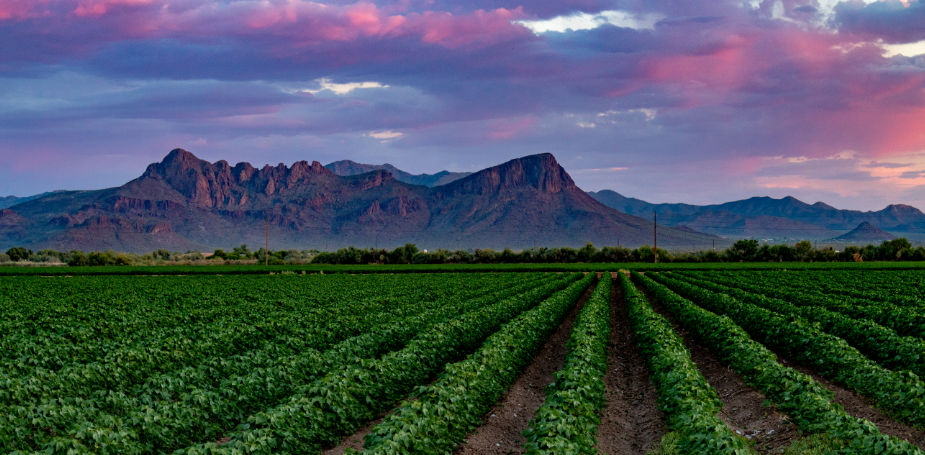With dozens of water bills introduced in the Arizona Legislature this session, EDF Action and the Water for Arizona Coalition are focusing on long-overdue steps needed to ensure water security for all, especially rural communities that face high water risk.
Rural Arizona is the only substantial region left across the seven Colorado River Basin states where an “open access” approach to groundwater management is still the norm. This anything-goes approach puts people and ecosystems in rural Arizona at a disproportionate risk of water insecurity and economic instability.
The consequences of unchecked groundwater pumping
About 1.5 million people, many of whom depend almost entirely on groundwater, live in parts of Arizona where groundwater pumping is essentially unregulated. This means a new water user can pump groundwater even if that pumping dries up connected rivers or springs, lowers neighboring wells, or causes land to sink or other property damage.
These impacts are being felt by rural residents across the state, as well drilling proliferates unabated in many areas. In addition, at least a third of Arizona’s perennial rivers and streams have been lost or altered, much of that due to groundwater pumping.
Despite these well-documented impacts, most rural communities have little to no ability to manage their water supplies and plan their water future.
The state of Arizona must act to ensure water security for all people, regardless of whether they live in Phoenix, Kingman or Willcox. Here are three key bills that should be given a hearing and due consideration in the Legislature this session; each advances a concept that would give Arizona’s rural communities more tools and, in doing so, advance water security for all.
HB 2679: Establishing Rural Management Areas
Rep. Regina Cobb (R-Kingman) re-introduced a bill, HB 2679, this year that would allow communities to create rural management areas, set goals and implement best management practices for those areas, and establish other conservation and planning measures in ways that meet local groundwater needs and conditions.
The RMA concept is a relatively new and innovative idea. EDF Action and partners believe the concept holds significant promise, and we are engaging to advance the idea in the Legislature this year. RMAs could become an important step forward in creating a framework for communities to pursue forward-looking water planning while promoting water security in important rural groundwater basins.
HB 2595 / HB 2206: Updates for Irrigation Non-Expansion Areas
Rep. Cobb re-introduced HB 2595, a bill that revises a rule on the creation of an irrigation non-expansion area, and Rep. Andrés Cano (D-Tucson) introduced a mirror bill, HB 2206. These bills would allow the Arizona Department of Water Resources (ADWR) to consider future, projected groundwater use when evaluating requests by communities to prevent additional irrigation through the creation of irrigation non-expansion areas.
Currently, ADWR may only consider current levels of groundwater pumping when evaluating community’s requests to prevent additional irrigation, effectively rendering this tool unusable until unsustainable groundwater pumping is already locked in.
Adding this forward-looking planning option would help communities halt the unsustainable expansion of new industrial agriculture operations, which are often owned by out-of-state or multinational interests and threaten community water supplies. HB 2595 would help protect rural water supplies as well as the longer-term viability and resilience of local Arizona farmers. It’s time for Arizona legislators to ensure water security for all. Here's how they can. Share on X
HB 2204: Expand Well Spacing Rules
Rep. Cano introduced HB 2204 to require ADWR to adopt rules that govern the location of new wells in groundwater basins that ADWR determines to be experiencing groundwater level declines. Wells that pump 35 gallons per minute or less, such as residential wells, would be exempt from these rules.
Such well spacing rules have already been successfully implemented in some parts of Arizona. By preventing dense clusters of high-capacity wells, this relatively simple tool can make a big difference in supporting sustainable groundwater use.
Water security for all requires state action for rural Arizona
Water security is the ability to safeguard access to adequate clean water to support basic needs, quality of life and health, while also ensuring economic well-being and preservation of life-supporting ecosystems.
A major step toward such security is equipping rural communities with new tools and authorities to manage their groundwater for current and future generations.










